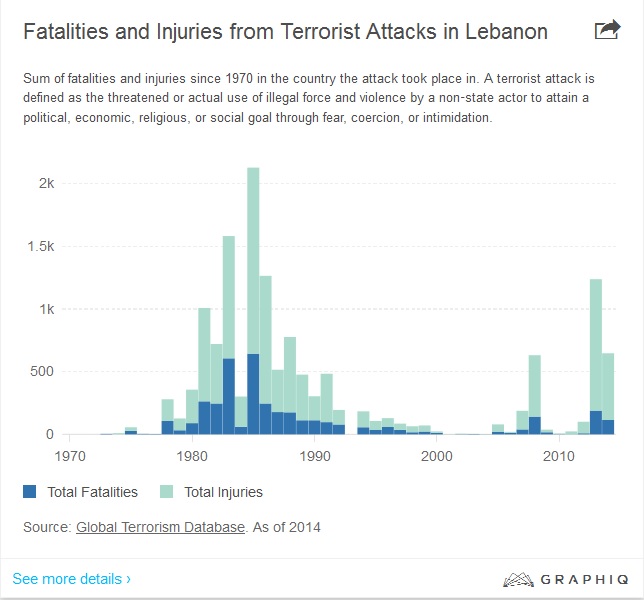- GOLD IRA
- Download Our 2024 Precious Metals IRA Investor’s Guide.
Click Here  Gold IRA
Gold IRA
 Investing
Investing
-
- CRYPTO IRA
- PRICES & STATS
- RETIREMENT PLANS
- BLOG
 Questions? Call (888) 820 1042
Questions? Call (888) 820 1042
A Boiling Point… For Gold
Disclosure: Our content does not constitute financial advice. Speak to your financial advisor. We may earn money from companies reviewed. Learn more
Last Updated on: 10th November 2021, 01:06 am
According to the bears, there are two reasons to be negative on gold: rising interest rates (an issue I discussed in “Is the Conventional Wisdom Wrong About Gold?”), which will make the price of the metal more expensive for non-dollar buyers; and low inflation, which negates the need for a hedge against rising prices. However, there may be a far more compelling reason to own the metal: its historical role as a safe haven investment in times of trouble.
There’s little doubt that geopolitical, political and social conditions around the world are deteriorating. The wave of attacks that occurred in Paris, France this past weekend, which led to the deaths of more than 125 people and which French President Francois Hollande characterized as “an ‘act of war’ organized by the Islamic State militant group,” represents the most disturbing example of this shifting dynamic. However, it is by no means the only one. Everywhere you look, instability looks to be on the rise.
European disunity
In Europe more broadly, the flood of refugees from the war-torn Middle East have triggered shock waves throughout the region. Overwhelmed, various countries have taken steps to install fences and checkpoints at borders that have been largely open since 1995. Many are increasingly seeing protests and clashes between right-wing groups and immigrants amid the so-called “foreign invasion.” According to one report, “pepper spray” is on backorder in Germany after a 600% surge in sales to “frightened Germans,” while a member of the opposition Alternative for Germany party has said the country “is somewhere at the edge of anarchy and sliding towards civil war.”
Other pressures are also undermining cohesion and increasing uncertainty in one of the world's largest economic blocs. Last week, Portugal’s center-right government collapsed after only 11 days in power, brought down by anti-austerity opponents who appear intent on pursuing policies that would involve “leaving the eurozone, nationalizing some major industries, and ramping up deficit spending”–a scenario akin to the long-feared Greek exit, or “Grexit.” Meanwhile, leaders of the autonomous northeastern region of Catalonia said they would defy a Spanish Constitutional Court order and press ahead with plans to become independent within 18 months.
China vs. the world
Over in Asia, tensions between China, on the one hand, and the U.S. and many of China’s neighbors, on the other, have been growing, especially in recent months. The rising Asian superpower has made aggressive moves to assert sovereignty over large tracts of the resource-rich South China Sea, including creating man-made islands in the Spratly archipelago that it says are sovereign Chinese territory. This has triggered disputes with nearby nations that also claim ownership of certain of those waters and raised the saber-rattling rhetoric.
Many analysts believe that China’s efforts reflect broader plans to become the dominant force in the East, in what is viewed as a direct challenge to the U.S. and its longstanding role as global policeman. In response, the latter has taken various actions, including sailing a guided missile destroyer and flying a B-52 strategic bomber near the islands, in what appears to be a geopolitical game of chicken. China’s naval commander told his U.S. counterpart in late October that “if the U.S. continues with these kinds of dangerous, provocative acts, there could well be a seriously pressing situation between frontline forces from both sides on the sea and in the air, or even a minor incident that sparks war.”
A new cold war?
America’s Cold War rival also seems to be raising the stakes in a challenge to U.S.-aligned interests. According to U.S. Secretary of Defense Ash Carter, “Russia poses a great threat to the world order with its military invasions in Eastern Europe, including Ukraine and the Baltic states, and Russian President Vladimir Putin’s alarming actions with his country’s nuclear weapons.” He added that “Moscow’s nuclear saber-rattling raises questions about Russian leaders’ commitment to strategic stability, their respect for norms against the use of nuclear weapons, and whether they respect the profound caution nuclear-age leaders showed with regard to the brandishing of nuclear weapons.”
The situation in the Middle East remains as precarious as ever; that said, things seem to be shifting to more dangerous ground. In what some have called a potential “game-changer” reflecting the growing power of the Islamic State, more than forty people were killed earlier this month in a Beirut suicide bombing reportedly orchestrated by the group. Separately, President Barack authorized U.S. boots on the ground “in Syria for the first time to advise and assist rebel forces combating ISIS,” while Russia has reportedly deployed advanced anti-aircraft missiles in Syria that could take down jets “as far away as Tel Aviv.”
Haven from the storm
Taken together, these various developments indicate that a sea change is underway. After years of relative calm, the world is becoming increasingly unstable. For those who have studied history, such a turn of events was probably inevitable in light of economic conditions that have not recovered to where they were before the 2008 crisis. Despite–or, perhaps, because of–the great “cheap money” experiment, the focus is no longer on sharing and cooperating; rather, it is on making sure one gets a share of the pie. In such an environment, it probably makes sense to own a bit of protection.



 Silver
Silver Gold
Gold Platinum
Platinum Palladium
Palladium Bitcoin
Bitcoin Ethereum
Ethereum







